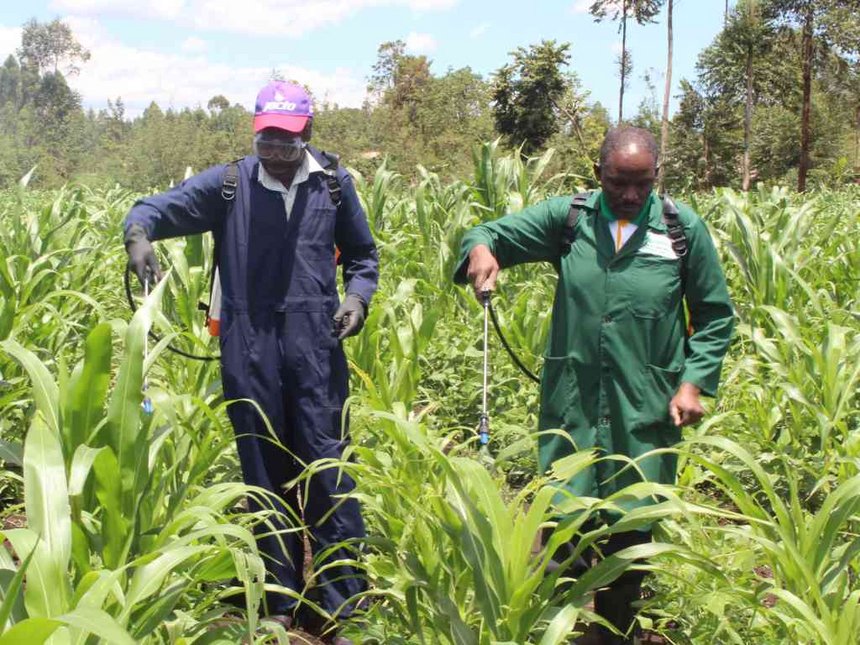The Kenya Agricultural and Livestock Research Organization last week listed the recommended pesticides to be used by farmers all over the country to curb the Fall ArmyWorm menace.
The five insecticides that were recommended include Abamectin + Chlorantraniliprole (e.g. Voliam Targo 063 SC), Lufenuron (e.g. Match 50EC), Chlorantraniliprole (e.g. Coragen 20SC), Emamectin benzoate (e.g. Prove 1.92EC), Pyriproxyfen (e.g. Profen 10.8EC) and Acephate (e.g. Orthene Pellet)
The insecticides can be bought at certified chemical sellers such as Coopers, Twiga Chemicals and Orbit Chemical Industries to curb the pest that was first discovered in Africa in 2016 but has since spread to 44 out of 54 counties in sub-Saharan Africa.
Related
Kenya to host conference to discuss ways to control Fall Armyworm in June 2018
Cheap and simple trap that can end Fall Armyworms in less than a week
Research organization introduces push-pull technology to stop fall armyworm
In Kenya, over 800,000 hectares of crops mainly maize was affected and destroyed by the pest in Kenya’s bread basket of Trans Nzoia, Uasin Gishu, Nandi, Busia, Kakamega, Kericho, Nandi, Bomet, Narok, West Pokot, Siaya, Kwale and counties in the central region.
As a result, maize production dropped from 37m bags in 2016 to 32m bags in 2017 according to statistics from the ministry of agriculture.
The ministry advises farmers to monitor their farms everyday so as to spray the pest in its early stages to avoid extensive damage.

Spraying of the pest is recommended for early in the morning or late in the evening when the larvae are active.
In this, the top leaves and funnels of the plant should be sprayed two to three times at an interval of two weeks in order to effectively control the young larvae that may emerge after earlier sprays.
Farmers are also advised to observe presence of eggs under the leaves of the plants such as maize and immediately spray them.
The ministry has already posted some of its staff to the affected counties so as to assist farmers on the appropriate measures to address the worm.
Besides releasing the chemicals, the ministry has set side Sh300m to be used by KALRO for further research in assessing damage and develop chemicals to control the pest.
Sh50m has also been set aside for the State Department of Crops who will work hand in hand with KALRO to find possible solutions to the problem.
The release of the chemicals will come as a relief for farmers and consumers alike who depend on maize for food and for commercial purposes to sustain their livelihoods.
















Comments powered by CComment